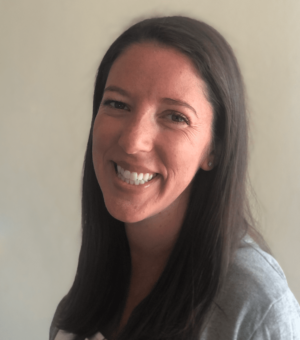
Using Collaborative Court Case Processing to Help People with Behavioral Health Needs: Q&A with Former Chief Justice Paula M. Carey
In the Fall of 2021, The Council of State Governments (CSG) Justice Center and the National Center for State Courts facilitated a virtual Community of Practice for interdisciplinary teams seeking to implement criminal case management for people with behavioral health needs (see below for more details). This series was supported by the U.S. Department of Justice’s Bureau of Justice Assistance.

Chief Justice Paula M. Carey
During the Community of Practice, Chief Justice Paula M. Carey—former chief justice of the Trial Court of Massachusetts—provided opening remarks, describing the role of the courts in helping people work toward their recovery. The CSG Justice Center interviewed former Chief Justice Carey to learn more about how effective court case processing can benefit people with behavioral health needs and support them around their recovery, as well as her perspective as a judge on the importance of court-based stakeholder collaboration. Chief Justice Carey is a member of the Criminal Justice Work Group of the National Judicial Task Force to Examine State Courts’ Response to Mental Illness. She was also instrumental in developing a new model of collaborative court and community case flow management that explores person-centered justice for people with behavioral health needs.
Editor’s Note: Answers have been edited for length and clarity.
You have been leading the effort in the National Judicial Task Force to Examine State Courts’ Response to Mental Illness to develop a new collaborative model of case flow management. Why do you think courts need to be involved in responding to people with behavioral health needs, and how does effective case management support those efforts?
Behavioral health issues remain highly stigmatized, which means they are often hidden until there is a crisis. Court involvement offers a window of opportunity to identify needs and connect individuals with care. That opportunity must be capitalized upon with effective case management and coordinated community responses.
Collaborative case flow management is the heart of the individualized response for cases impacted by mental health issues. Judicial leadership, early identification of behavioral health needs, timely treatment, active management of case progress, and collaboration with court partners are essential to moving mental health-related cases through the courts with care.
Is there anything that, as former chief justice of the Trial Courts, you have seen to be particularly effective in improving a person-centered approach for people with behavioral health needs?
Clear and sustainable partnerships between courts and behavioral health partners are at the core of a person-centered approach for state courts. While every partner stays in their lane, there are clear connections between the lanes. This approach treats each person and case with dignity. In practice, this looks like processes for individuals to meet with clinicians for assessments, early appointment of counsel, court-based navigation-to-treatment, judicial oversight of case progress, and specialty pathways.
In light of the pandemic, what have you seen in Massachusetts with court and community responses to people with mental illness, especially if a case is filed in the courts?
The COVID-19 pandemic brought unprecedented challenges to our staff, court partners, and the people moving through our courts every day. The pandemic has exposed and amplified the gaps around systems and has pushed us to adapt daily. This has meant rapid transitions to remote court hearings, addressing backlogs, protecting and supporting staff, and more. The onset of virtual hearings has only exacerbated the challenges for individuals with mental illness in accessing the court. Further, the depletion of assessment services has caused challenges for the court and for the individuals with mental illness.
We know these new and ongoing stressors have resulted in a rise of mental health challenges for court users, staff, and communities across the country. It is imperative that we work diligently and collaboratively within our courts and with our court partners to ensure we identify behavioral health needs at the first opportunity, get people connected to support in a timely a manner, and give each case the individual attention it needs to resolve.
In the community, the staffing challenges facing behavioral health treatment partners have reverberated into the courts and remain a significant problem.
What has led you to champion this new model of collaborative court and community case flow management for people with behavioral health needs?
I care deeply about improving outcomes for individuals with behavioral health needs. It is crucial that state courts and judicial leaders ensure each case gets the attention it deserves. It may take comprehensive assessments, evaluations, and reimagining of how we do business to achieve different outcomes. The challenges facing court users, staff, and partners are unprecedented. We must adapt and evolve with intention now.
Are there any cases that you can tell us about that have reinforced the importance of this work for you?
There are many, but one case, in particular, stands out from our new Boston Outpatient Assisted Treatment program (BOAT). BOAT is a collaboration of the Boston Municipal Court Department and Boston Medical Center that provides intensive social, mental health, and substance use disorder services to help court-involved clients maintain stability and achieve recovery within the community.
A 38-year-old Black woman from Boston had been previously employed in food service at local colleges and had many intersections with the criminal justice system when she was referred to the BOAT program. She had substantial trauma history, lives with bipolar disorder, and has a significant substance use disorder.
Through the BOAT program, she was able to work with a case management team that includes a judge, case manager, social worker, peer specialist, resource specialist, and a recovery coach. She now meets regularly with the judge and the case management team who affirm her efforts and forward progress, has reengaged with the Department of Mental Health, received assistance in getting an identification from the Registry of Motor Vehicles, and secured a job.
—————————————————————————————————————-
Learn More About the Community of Practice
The 2021 Exploring Person-Centered Justice in the Courts Community of Practice consisted of four group sessions and individual technical assistance sessions, where four court-based teams learned how to use relevant data to improve their case processing. The participating sites were the Chelsea, MA District Court; the Fairfield, OH Court of Common Pleas; the 8th Judicial District of New Mexico; and the Clatsop County, OR Circuit Court. The sites also discussed strategies to improve outcomes in the criminal justice system for people with behavioral health needs. (See Improving Case Processing and Outcomes for People with Behavioral Health Needs for further details). Sessions focused on strengthening community responses for people with behavioral health needs, minimizing justice system involvement, promoting early intervention and triaging cases if charges are filed, and institutionalizing alternative pathways to treatment and recovery. Learn more here.
Hero photo credit: Photo by Sora Shimazaki from Pexels
Profile photo courtesy of Chief Justice Carey
About the author











